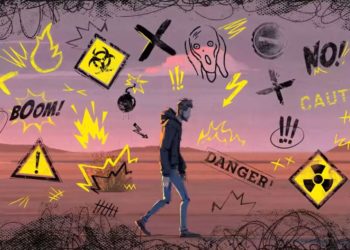On Feb. 27, Abdullah Ocalan, the imprisoned leader of Turkey’s Kurdistan Workers’ Party (PKK), called on the group and its armed affiliates to lay down their weapons and disband. The PKK responded positively, declaring a unilateral cease-fire in its conflict with Ankara and requesting security assurances from the Turkish government to facilitate the group’s dissolution.
Ocalan did not specify whether his call applied to the PKK’s ideological offspring in Syria, the U.S.-backed Syrian Democratic Forces (SDF). The SDF controls much of northern and northeastern Syria east of the Euphrates River and has been a key player in the fight against the Islamic State.
But just days later, on March 10, the SDF’s leader, Mazloum Abdi, signed an agreement with Syria’s interim president, Ahmed al-Sharaa. The sides agreed on eight principles, laying the groundwork to secure Syrian Kurds’ constitutional rights and integrate the SDF into the new Syrian state by year’s end.
These twin developments have profound implications for geopolitics in the Middle East. Ocalan’s call and subsequent events in Syria signal a potential turning point for Kurdish political and military strategy. As the PKK considers disbanding and the SDF pursues political integration, how the Kurdish question is answered in one country will shape how it is answered elsewhere.
The Kurds make up approximately 15 percent to 20 percent of Turkey’s population, numbering around 15 million to 20 million people. They have faced cultural and political repression since Turkey’s founding in 1923 and continue to struggle for equal citizenship. Kurdish issues are a core driver of political tensions in Turkey.
The conflict between the PKK and Turkey has spanned over four decades, claiming more than 40,000 lives and displacing millions of people. Throughout this period, Turkey has criminalized many Kurdish political and cultural rights, frequently equating them with PKK membership or terrorism. Pro-Kurdish political parties separate from the PKK, such as the Peoples’ Democratic Party, have faced repression from Turkish authorities, too.
Now, what appears to be the start of a transition to a nonviolent, democratic process of reconciliation could create some stability in the region. The PKK is a designated terrorist organization in the European Union, United Kingdom, and United States, as well as other nations. Its dissolution could render that classification obsolete.
Yet the specifics of Ocalan’s status and the PKK’s disarmament road map remain unclear. Ocalan’s announcement is allegedly the product of prolonged negotiations with Turkish authorities that span over a year. According to the spokesperson of Turkey’s pro-Kurdish Peoples’ Equality and Democracy Party—a key party in the process—Ocalan and PKK and SDF leadership exchanged private letters prior to his call for the PKK’s disbandment. This indicates that Turkey may have made certain guarantees to the groups’ leaders.
Unlike prior peace efforts that emphasized legal reforms as the first step, the current process demands immediate disarmament with no clear path to peace and reconciliation—or third-party oversight. The 2013 to 2015 Turkey-PKK peace process included a committee composed mainly of civil society leaders and artists. Similarly, during 2008-2010 negotiations, Norway mediated by hosting talks.
The Kurdish public is wary of engaging in talks with Turkey due to the failure of past negotiations. Yet they also see Ocalan’s call as a potential path toward long-awaited peace. The very pro-Kurdish parties Turkey has long repressed may now have an opportunity to play a key role in talks. One possible outcome could be broad amnesty for thousands of Kurdish political prisoners, including Selahattin Demirtas, the former leader of the Peoples’ Democratic Party who has been imprisoned since November 2016.
However, following the recent arrest of opposition leader and Istanbul Mayor Ekrem Imamoglu, mass protests have disrupted negotiations between the PKK and Ankara—and shifted national attention away from the Kurdish issue. The Turkish government’s next steps are unclear. They may be linked to what happens in neighboring Syria.
Turkey has played a significant role in the Syrian civil war since its outbreak in 2011, hosting millions of Syrian refugees and supporting various armed factions in the conflict. Ankara’s primary motive for getting involved has been its desire to eliminate threats posed by Kurdish groups allied with the PKK, such as the SDF. At different points, Turkey has backed several Islamist groups that fought against Kurds, the most influential being Sharaa’s Hay’at Tahrir al-Sham and the Syrian National Army, a conglomerate of armed factions.
After Sharaa’s forces ousted Syrian dictator Bashar al-Assad last December, Turkey swiftly reengaged with Syria. Turkey sent its intelligence chief and foreign minister to Damascus, offering diplomatic and logistical support to the new state. Some observers, including U.S. President Donald Trump, have suggested that Turkey was behind Assad’s fall. On April 8, Trump said that Turkish President Recep Tayyip Erdogan had “taken over Syria … through surrogates.” Erdogan has welcomed the deal between the SDF and Sharaa, endorsing the militant group’s integration into the new Syrian state.
The agreement marks a major step toward political dialogue and potential power-sharing. If successful, the monthslong peace process could transform Kurds from peripheral actors into foundational partners in post-conflict Syria, similar to after Saddam Hussein’s fall in Iraq.
However, Syrian Kurds remain cautious. Implementing and safeguarding their hard-earned autonomy may prove difficult. In recent weeks, Syria has experienced an uptick in violence against ethnic and religious minorities.
Forces loyal to Sharaa’s government in mid-March massacred over 1,000 people in the erstwhile Assad stronghold of Latakia. An interim Syrian constitution that Sharaa signed on March 13 also lacks adequate protections for minorities. It has been rejected by Alawite, Kurdish, and Druze communities. Until a credible, enforceable legal framework protects Kurds and other minorities, the SDF will likely remain armed.
The trauma of the Islamic State’s rise also continues to haunt many Syrian Kurds. The group is estimated to have massacred thousands of Kurds in the country’s northeast between 2013 and 2017.
Abdi and Sharaa have jointly declared their commitment to continuing the fight against the Islamic State. However, a major unresolved issue is the fate of the over 40,000 Islamic State detainees and their families currently held in SDF-run camps and prisons. This has been a particular concern for the United States and European countries, as there are significant numbers of foreign fighters among the detainees.
Sharaa has expressed a willingness to assume responsibility for these facilities, but his controversial past as a jihadist militant raises serious security concerns. Some analysts say that putting Damascus in charge could compromise the global coalition’s efforts against the Islamic State.
When it comes to Syria, the United States—the key actor in the coalition—may be pulled in a few different directions. Syria has become a battleground for power and influence between Turkey and Israel. Israel currently occupies southern Syria and periodically targets Syrian defense installations with airstrikes. Reuters reported that Israel has lobbied Washington to keep Syria weak and decentralized—likely in part by supporting Kurdish and Druze groups as part of a broader containment strategy. That’s despite the fact that Sharaa has repeatedly declared that he does not want conflict with Israel.
Turkey, for its part, continues to push for full disarmament and integration of the SDF into the Syrian state. Trump, who has strong ties to both Erdogan and Israeli Prime Minister Benjamin Netanyahu, has said he could mediate between the two leaders.
What’s clear is the Kurdish question in Syria cannot be addressed through the same lens as Turkey’s conflict with the PKK. While Turkey significantly reduced the PKK’s operational capacity within its borders, the SDF is Syria’s most formidable armed group—making it an unavoidable actor in any future political or security discussions in the country.
The SDF’s participation in Syrian state-building could accelerate democratic improvements for Kurds in Turkey. That’s because, by its very nature, the SDF’s integration into Syrian institutions necessitates state recognition of Kurdish identity—something Turkey has long been reluctant to do.
The confluence of the recent PKK and SDF announcements means Kurds are no longer an isolated geopolitical force. Over the past two decades, they have forged strategic alliances across borders, expanding their political influence and strengthening military capabilities.
While they remain vulnerable to shifting regional power plays, Kurdish groups have leverage that did not exist in previous eras. Ocalan’s call has set in motion a profound geopolitical recalibration—one whose ultimate impact will depend on how skillfully all actors, including Kurds, navigate the unfolding landscape.
The post Are the Kurds at a Political Turning Point? appeared first on Foreign Policy.




